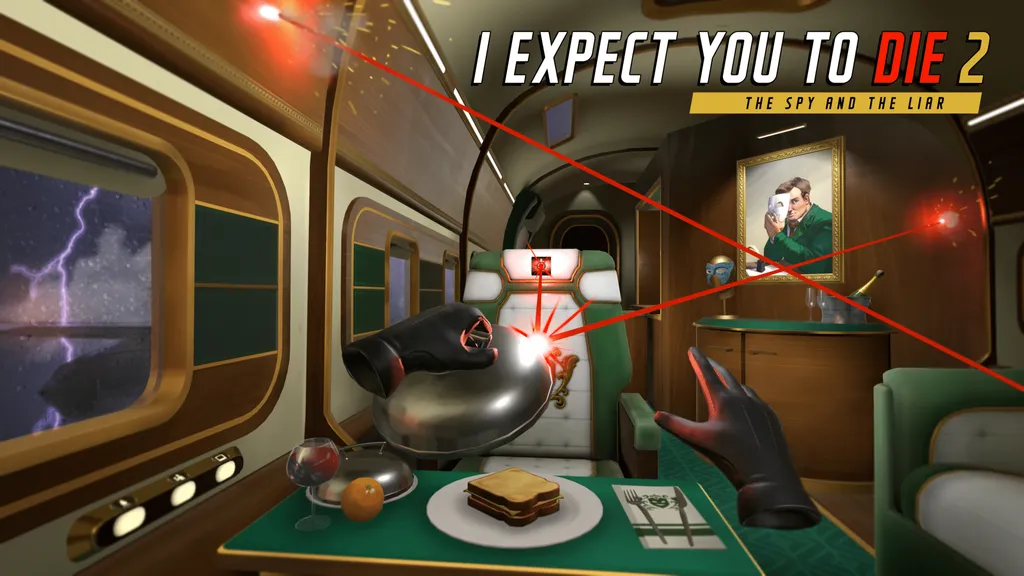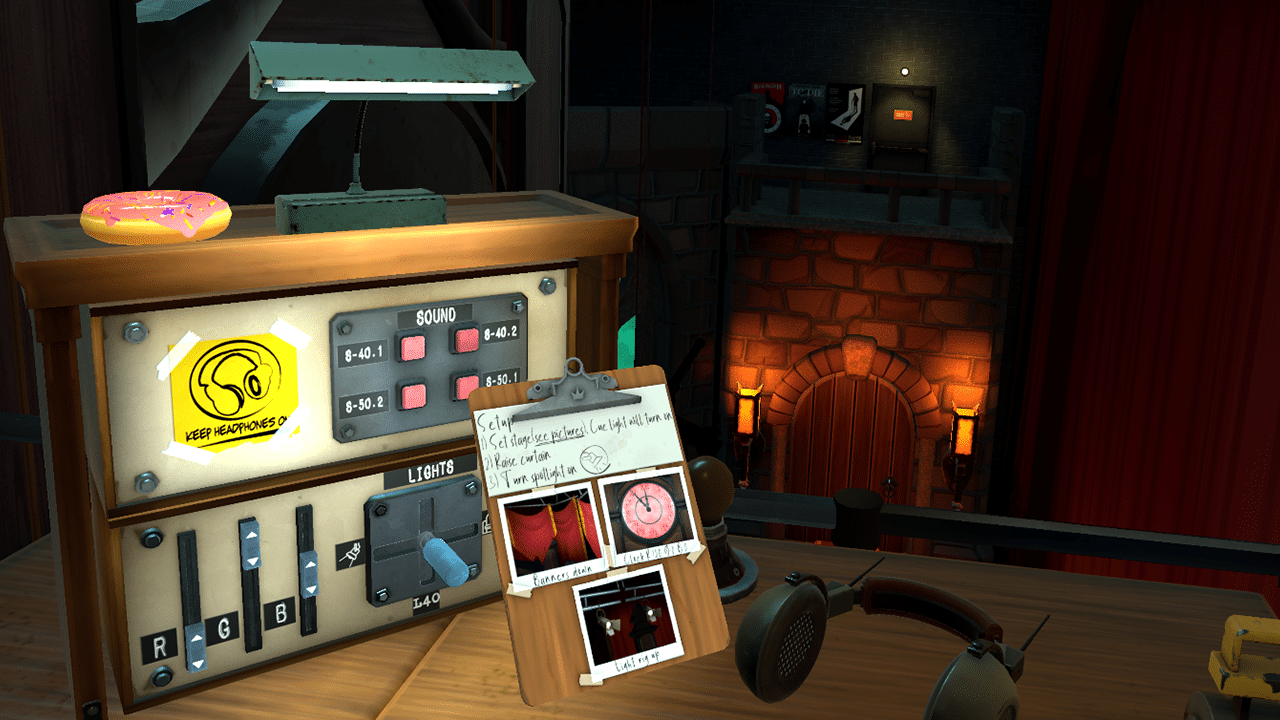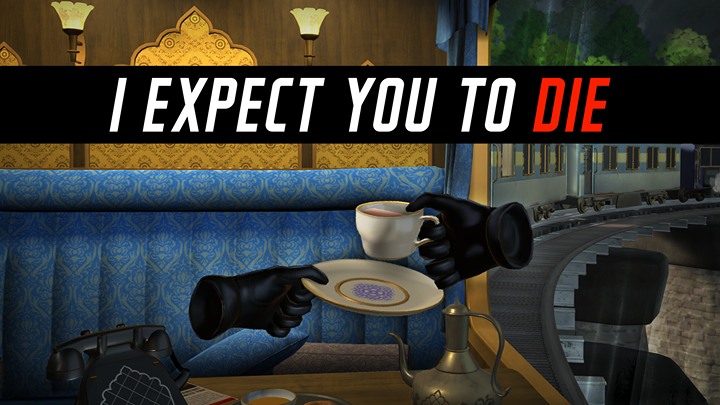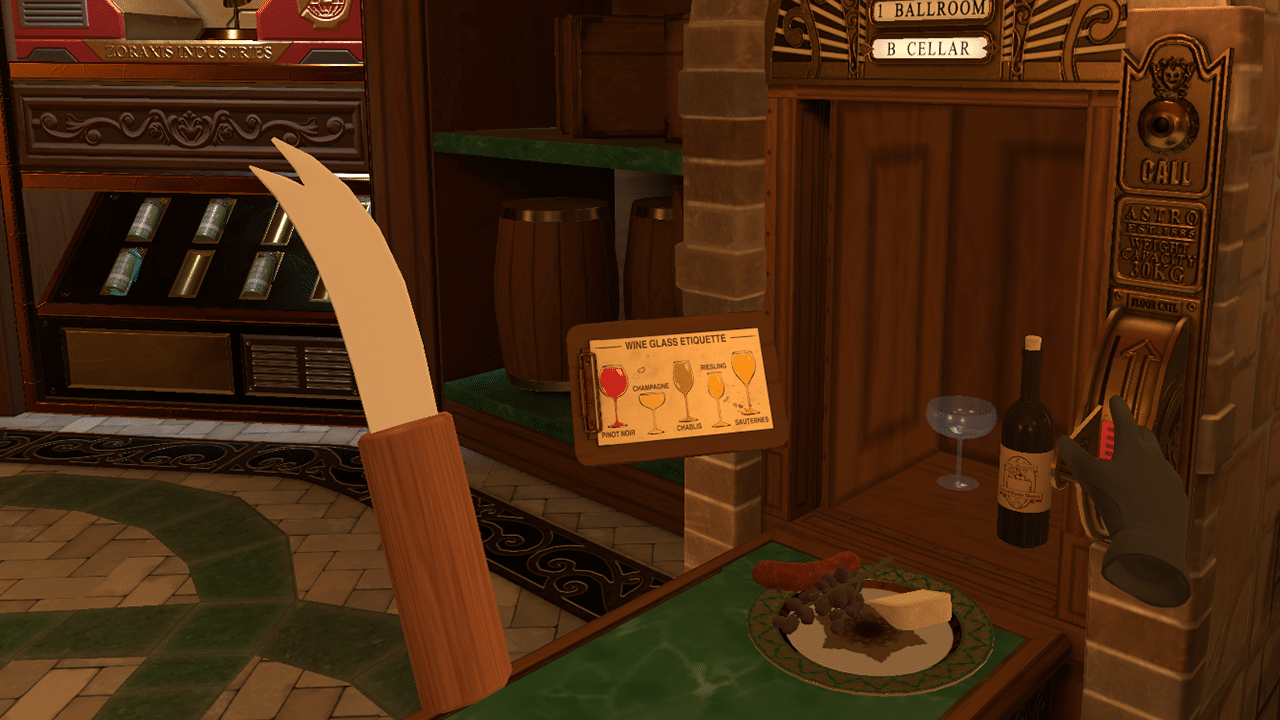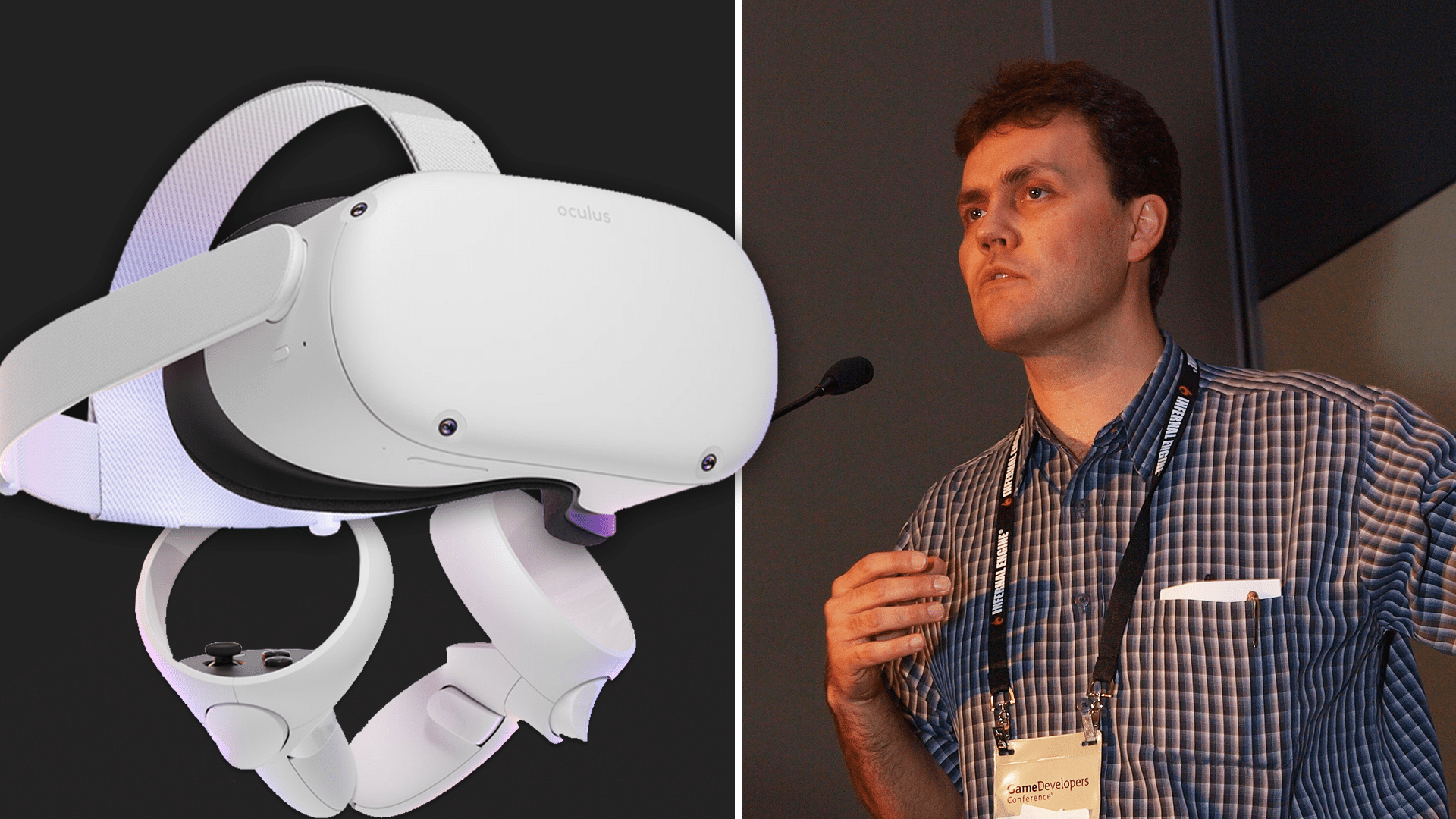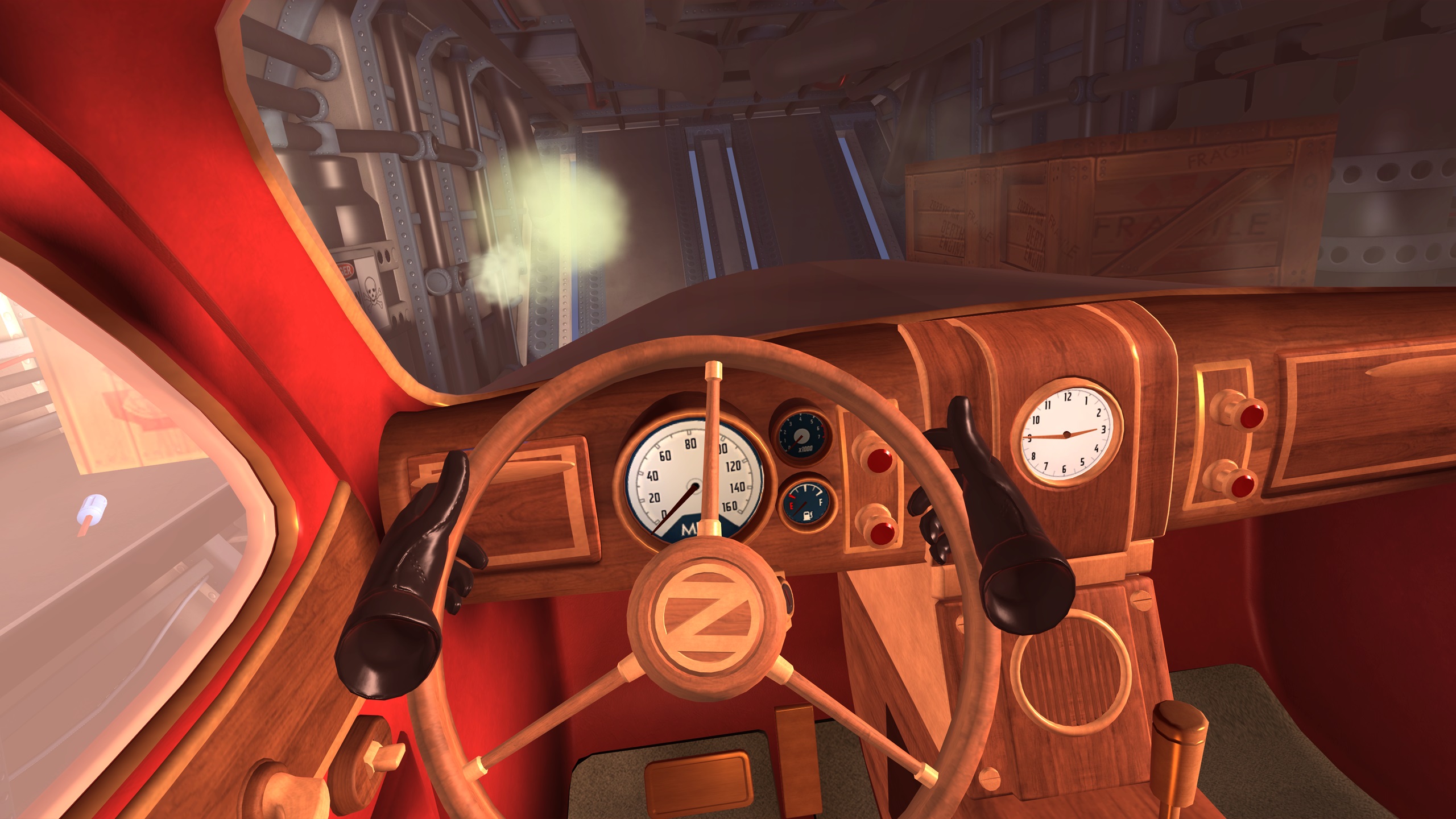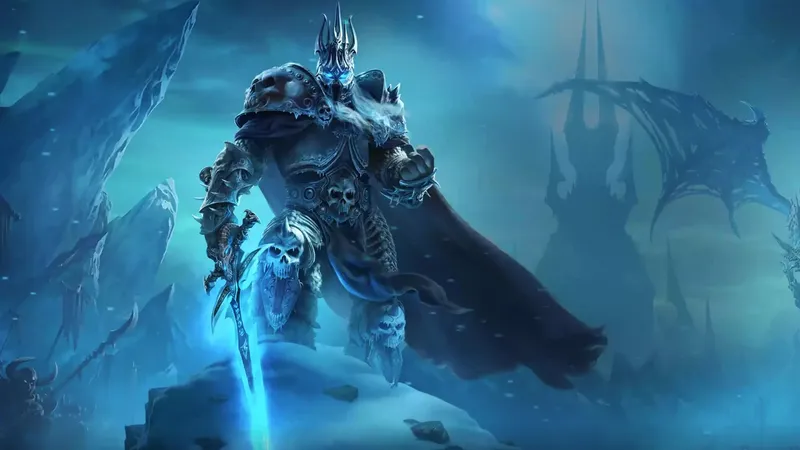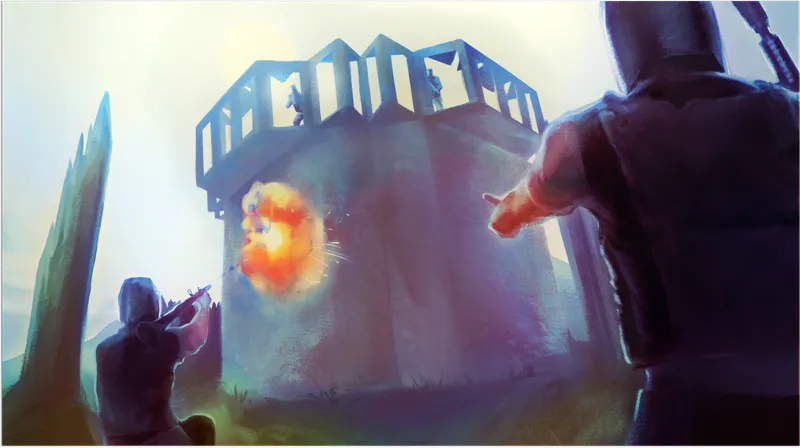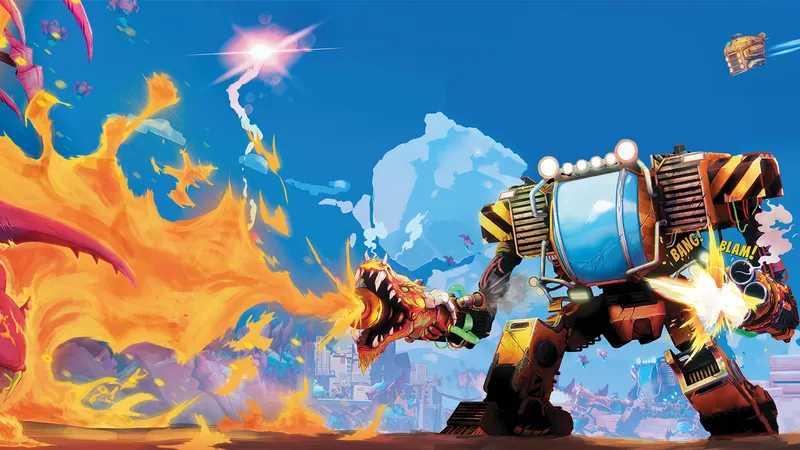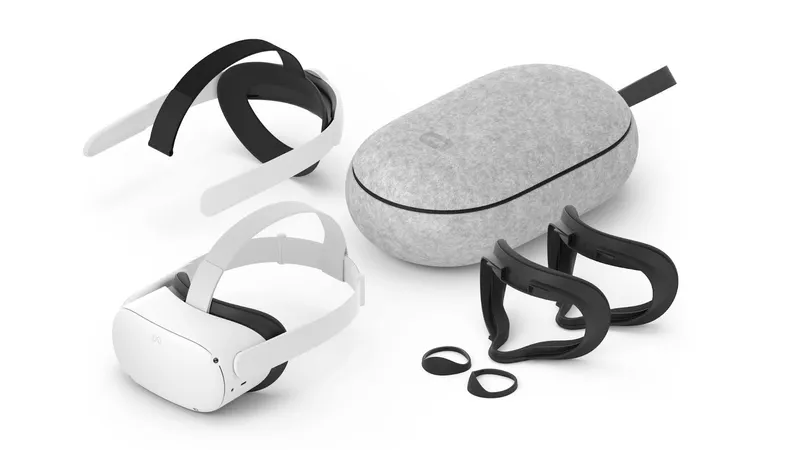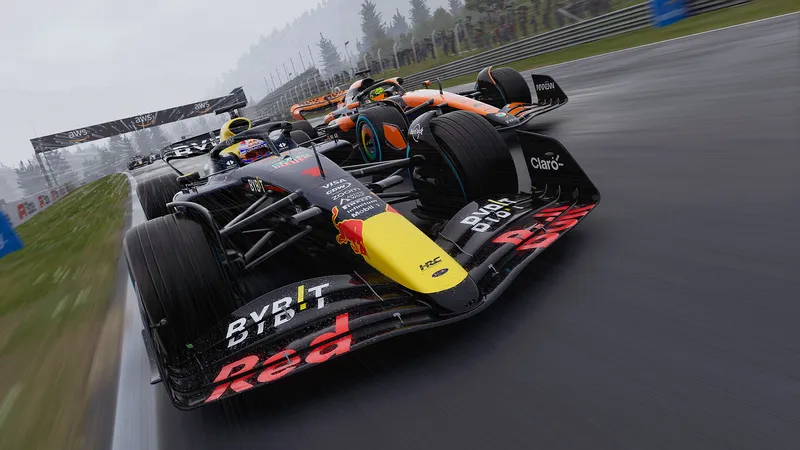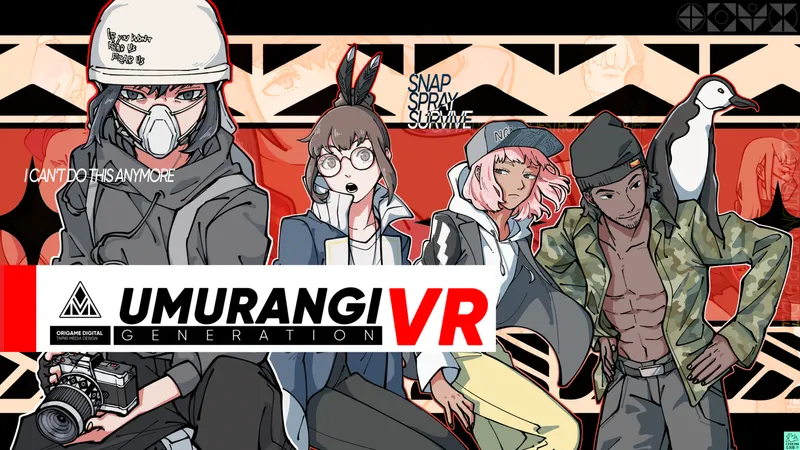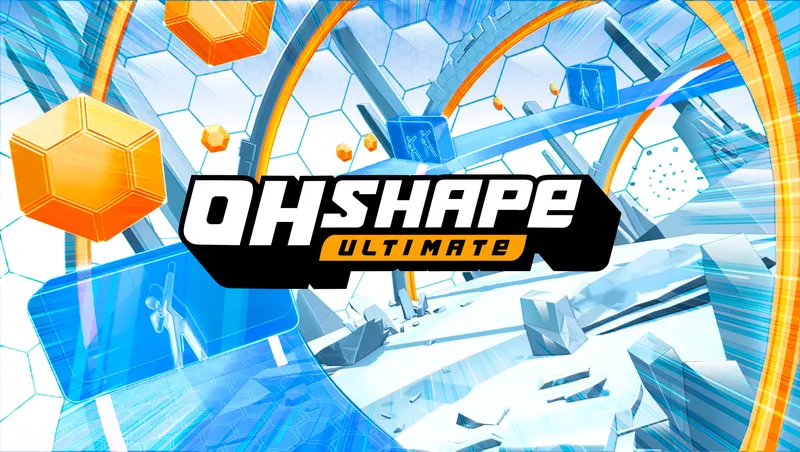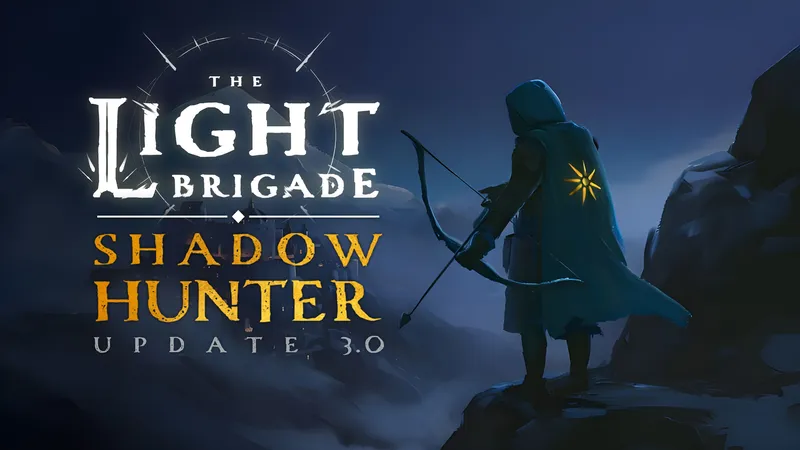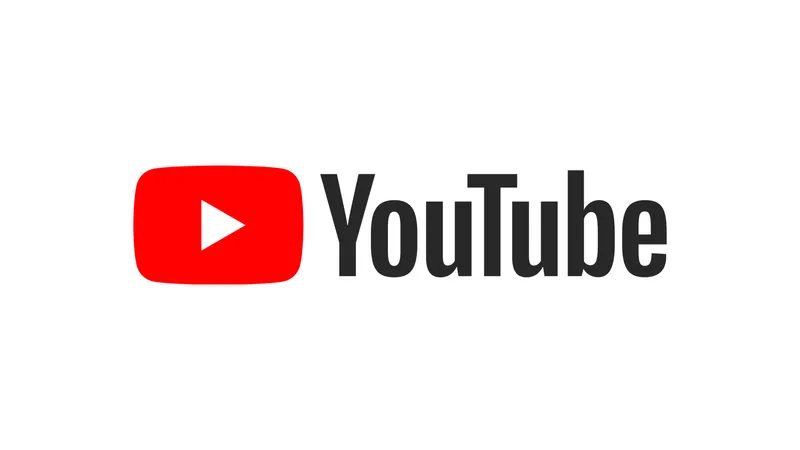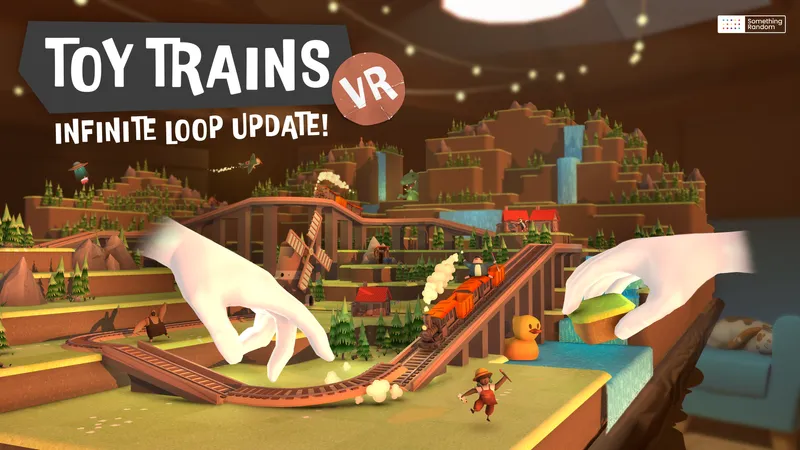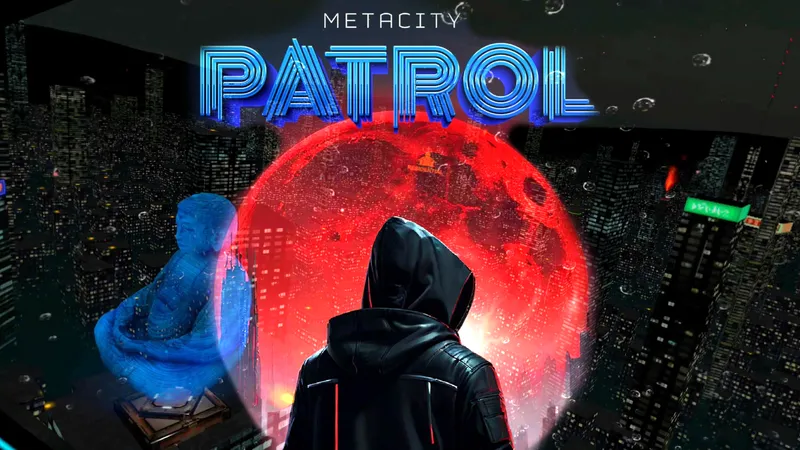Schell Games seems unique among VR developers.
Yes, the Pittsburgh-based studio puts out games to please the masses but, for Schell, that’s only one small part of a wider VR strategy. Educational VR content is a big focus for the team which, for example, and a long history of working with the tech helps CEO Jesse Schell speak from a place of authority when he surveys the future of the industry. It’s also now working on that almost-unheard of thing; a sequel to a very successful VR game.
In another words, Schell has a lot to talk about.
So we sat down with Schell and IEYTD2 project director, Charlie Amis, over a webcall. Below is our full transcript covering the origins of the new game, the direction Quest 2 is taking VR, and where we might be in the next five years.
Upload: Hi both, great to be talking with you. How are you holding up with the current state of things?
Charlie Amis: I’m glad the pandemic happened back March and not now. Because now we’ve got some good systems, we’re all a little bit more used to it and we needed some stability.
I know it’s a weird time, but at least it’s a little bit expected as to what’s happening and how people are running their lives these days.
Upload: Has all of I Expect You To Die 2 been developed under the pandemic then?
Amis: Just about, we went through a concept phase beforehand in kind of the fall of 2019. And then we went into alpha on our first level the day we all headed home
Upload: This is very interesting because I just realized, I had been thinking about this completely obliviously. My first question was going to be – did you build physical sets again, like you did for the first one, but then I’ve just remembered that you were all isolating and that can’t of happened.
Amis: There’s a couple of pieces. One is because of the first game, we had a lot more in-engine, ready to go prototyping abilities. So if we wanted to make something quick, we could just use a lot of those systems we already had.
However, in cases of wanting to rapidly and cooperatively make a level design — a set — especially one that’s in a first-person VR perspective, we used a couple of other tools like SculptrVR. We were using ScluptrVR a little bit while still at the studio. Kind of just as an experiment to see what it would feel like to cooperatively build some things and found that– well, obviously we didn’t make anything we would then be able to like import it into Unity or even want to do that.
But it did get us very quickly to realize we were thinking of different spaces or the scale of spaces was often in our imaginations and by all being in there and like the sitting in the seats like: “Oh yeah, I see it. We should see a little bit of the wing over to our left and if the cabin’s this big, like that could work.” So it got us to like a vision alignment way, way faster.
Upload: It does sound like something that wouldn’t have been possible had the pandemic happened back in 2016, 2015, when you were working on the first game. It’s very fortunate that more of this VR technology had moved forward and I guess some of your own development techniques as well would have helped with that, right?
Jesse Schell: Yeah. I think in general, we’ve found that during the pandemic, working from home is really hard when you’re trying to spin something new up. But when you got momentum on something and everybody can kind of go home and do it, and everybody’s already on the same page and everybody already has a sense of best practices? Those are the projects that have been easier to do during the pandemic.
So yeah, if we were trying to birth this thing in this sort of separated from home world, I think we would have struggled a lot. And so we feel very blessed to be able to work on something that already has such strong momentum
Upload: So would it be fair to say that, because of the pandemic, I Expect You To Die 2 exists, would it have been maybe another product that we’d be talking about right now if you’d all been in the office for the past year?
Schell: I don’t think so. We’d started that beforehand, right Charlie?,
Amis: We had, we started it right after we finished with the last level of the first game. And that was still in the like September of 2019, when we had a few months of just a very small team putting together the idea for this. And then we’re like, “All right, we’re ready to build it!” Then it was: “Everybody go home.”
Schell: And I think a better way to put it as I Expect You To Die is an unstoppable force that even a pandemic can’t shut down.
Upload: Talking about those new development techniques and everything, then, so much has happened in VR in the past, four years. Things like Boneworks have come along and really kind of pushed forward physics. I’d love to know– obviously you guys, kept iterating on that first game and kept adding those new levels, but is there stuff in this game that you’re tapping into? Development techniques that we’ve seen in the past, like two or three years coming about that we didn’t really know about in 2016?
Schell: Well, I mean, I guess I’d put out there, one of the big changes for us is the presence of the Quest, right? It used to be, we went on in this assuming “Oh yeah. PC VR is going to be– that’s where you start, and maybe you do something else.” And the Quest is the center of the VR universe right now, and it has certain limitations.
And so definitely, in terms of what’s had an effect on our development is making things that can excel and be excellent within the constraints of the Quest. That’s something that is very different than when we started the original game.
Upload: That’s gonna happen a big impact on it, for sure. But you can also go the other way then with Quest and say, “Well, at the same time, players won’t have a wire, so maybe our design can be a little freer.” Is that something that you guys considered? Or was it because you’re also potentially coming to PC and PSVR, you have to keep within those constraints as well.
Amis: Yeah, we certainly want the largest group of people to be able to play this. So it was important to us to support even still wired headsets. At the same time, we know that Quest players love to explore the space, and for the original game, if you get up out your seat and walk around it wasn’t really designed to do that.
So we’ve tried to keep that in mind. How will we handle that? Well, how can we create scenarios that are fun in Quests but don’t break for wired devices or front-facing devices like the PSVR? I think we’ve found a good space where if you loved the original, you’re really gonna love the second one, but there are a lot of iterative improvements; new things, quality of life features that make it even better.
Schell: And as much as moving around is fun, like Charlie says it can be limiting for some people. Like I know I have a hard time in the way my house is set up finding a space that’s 10 foot by 10 foot clear space. That’s a real challenge.
And so there are games I ended up shying away from because I don’t really have that space. So we know that the less space required the more likely people are going to drop in and try it. And then further, the nature of a puzzle game in some ways is better suited to a seated experience because something that happens in puzzle games is there are times you have to stop and think. And you just have to be kind of “Ooh, what am I going to do?”
And if you have to stand up while you’re doing that, you start to become a little conscious of it. You start to get fidgety, you start to feel like– you just don’t feel great about yourself. But if you’re kind of seated and you can kind of lean back and play with some of the virtual toys in the environment. It’s almost like you cozy into the world.
I know that sounds a little weird. And so it’s a thing we think about. So like for us, the big contrast is I Expect You To Die versus Until You Fall, our sword fighting game, which that one’s very, very much being about on your feet and taking advantage of the energy that you have on your feet.
This is much more about playing with the contrast of sometimes on relaxing, but then sometimes a tense moment, but now back to relaxing again. It’s interesting, but we questioned do we want to stay seated for the second game, but after kind of going through it, we felt now that feels like part of what this is about.
Upload: And what was it about the response to the first game that led you to greenlight this game, essentially? I mean, obviously we know from your stories in the past that it’s made a bunch of money, but apart from that– stuff like player retention or any kinds of interesting stats there that you might have found were like unique to your game in VR, perhaps that really showed the encouraging signs for a sequel.
Schell: Well we were seeing that people loved it. Because when the game first came out, it only had four levels. And we started just dropping free levels onto it. We added level five, level six, level seven onto it, one by one, not paid DLC, just free to keep people interested, keep people talking. And then further, we always just try to help the game find its right size, you know, and doing that– that game came out four years ago and it’s kept people’s interests. It’s kept people excited about it.
And sort of seeing that we could add levels and it would work gave us huge confidence that adding a sequel could work well.
Upload: Take me through some of the stats for this one. How many levels are you guys expecting there to be at launch and are there plans for post-launch drops again and whatnot?
Schell: So yeah we’re not quite ready to talk about exactly what all is going to be in the new game, but that we’ll be talking about that soon. As for post-launch levels, I think that’s a thing we’re still trying to decide and trying to figure out.
Because previously we were dropping those levels just because, you know, we were sort of spinning the thing up from nothing and here we’re able to do things a little differently than we were had done before.
So I think we’re going to wait and see, and a lot depends on what happens with the Quest market over the coming year, how are things going.
Amis: One of the goals for the project was for it to have kind of a cinematic feeling of like being in a spy movie. And so it was less about number of levels and the way the first one was where it was really easy to add a new scenario. This one was really built from the beginning as a single whole to feel like one experience, as opposed to episodic. And I think that’s really gonna come through and be part of what makes it feel like a sequel too.
Upload: Were there any kind of comments, criticisms about the first one that you’re trying to improve on here? I mean the first one is very much a trial and error based thing, but that sounds like that really resonated with players the first time round.
Amis: So a lot of experimentation went into the first one and we have some levels that stress certain kind of puzzle-solving or kind of action like our submarine level has a lot more time-based actions, really close interactions. And the lodge level is much more kind of role-playing and spatial. The puzzles are a bit easier and they kind of tell a story.
And we found in asking people, what’s your favorite level from the first game? There was some camps of people who love the lodge and maybe they never died, they beat it first try, but had a great experience and really dislike the submarine because they had to keep playing it over and over again.
And then the opposite – people that loved the challenge of submarine and if they don’t die in a level it’s too easy, not interested.
This time around, we tried to smooth that out a bit so that it appeals to both of those camps in different ways. It’s really important to me that people don’t get stuck and frustrated, put the game down for a while and maybe never come back. I’d rather them all finish even if one or two puzzles are a little easy but the solve was clever, it was cool, it resulted in a big explosion or fun moment and they get all the way through and have that experience that they can share with their friends rather than I was fine until I got stuck and I gave up.
Upload: Yeah. I mean that’s interesting because one of the great challenges with VR puzzle games, I think is– we were talking earlier about how you get stuck, you need to think, and you’re standing up and you get fidgety. I get immensely frustrated. And actually one of the biggest drivers of VR nausea for me is confusion.
And when I’m in a VR puzzle experience and I don’t know what I’m doing I just get hot headed and I immediately don’t want to be there essentially. So it’s good to hear you talk about that because I do think the first game was actually pretty successful when navigating some of those issues in the first place, but it’s something to really think about, isn’t it?
Schell: Oh yeah definitely. And what we’ve tried, all along through the whole cycle of all these games, is constantly looking for what do people actually like? What do they actually enjoy? And you can’t just go in with preconceived notions about it. You have to have people play and you watch it and you see what they like.
And it’s often things that don’t seem important, like the sandwich and the fact that you know, that you bring it to your mouth and you can eat the sandwich. Like that wasn’t a thing that we came in with. What happened was we put a sandwich in as a prop because it seemed appropriate.
And then we saw people would try and eat it. And when they couldn’t, they would be disappointed. So, “Oh, okay. What if we add that?” And, and so, so much of the game happens that way. What do people want to do? What are they trying to do in here? And let’s see if we can support that as we, as we learn about it.
And it doesn’t always mean that it’s what we thought it was going to be. But by doing that over and over and over, eventually you get something where people are very comfortable because all the things they try and do are supported.
Amis: That’s the primary design direction for our alternate solves, our souvenirs, for some of the extra ways you can solve things. We try not to design those and instead have the playtesters, you know, try out things. And then when they try something that we don’t support, we go “Oh, let’s support that one.” The likelihood that someone else is going to try that is so much more likely than if we designed a thing that we thought was clever.
Schell: And it takes so much patience. Like I remember on the first game we put in a champagne bottle as a prop and people were like, “Oh, great. I want to open it!” Oh, of course you do. Okay. Now it’s got a cork and you can open it. “Now I want to pour out the liquid into a glass!” Of course you do, now we’ve got to support liquid. Okay. All right. We’re supporting liquid now and “Great I poured it out and I can drink this champagne and that’s so cool. Now I’ve got an empty bottle. I want to break it.” Oh, of course you do. Okay. So now there’s a broken glass. “Oh, okay, I want to take this broken glass, use it as a knife and cut this wire.” Oh, of course you do. Now this is impacting our puzzles, but oh, okay, actually, that’s kind of an interesting side solve that maybe we didn’t think of and think about.
And so you just keep going and going and going down this road and you do enough of that and things feel really good.
Upload: That’s what VR development is though, especially for guys like you, that started at the very beginning. You’re building almost an encyclopedia of reality and the next time someone wants to interact with glass, you’ve already gone and done that work. If you wanted to, you can make a whole game around smashing glass now or whatever.
Schell: And I would say it’s so it’s funny. You can point quite directly. The submarine level, which we did later. That was one of the last ones that we did that we initially did, but it has a lot of fluids in it. It’s got fuel and you’re getting flooded and all of that. And that all came from the champagne bottle in the first level. Because we start realized we needed fluids to support that champagne play and that opened up a door for fluid puzzles in the later levels. So yeah, I think exactly what you described is true. That as we develop these new modules and ways of working, we can kind of– we look at them and say, “Oh, well, how can we, how can we make use of that?”
Upload: Let’s move on to some of the kind of more industry-focused topics then. I mean, sticking with the game, would it exist if it wasn’t for Quest and Quest 2? Would you be making this or would you have packed your bags and left VR by now, do you think?
Schell: Oh man, there’s a question. I don’t know if we would have made the level of investment that we’re making into the sequel if Quest wasn’t where it is. It’s an interesting question. Where would VR be right now if that hadn’t happened? And that’s actually a little hard to know for certain.
I certainly think it would have made us more conservative. I think we might’ve taken a slower path with this or looked for publisher support instead of doing it independently. Or maybe we would have waited to see a little longer. I’m not sure, but without a doubt, I think this title coming out, the amount of investment we’re putting into it and the timeline that it’s on, that wouldn’t be happening without the Quest.
Upload: I was going back over some of the interviews we’ve had with you in the past today. And there were things like you predicted maybe Quests would sell a million units in 2019, that VR uptake hadn’t perhaps quite been what you would have expected that to have been at that point in 2019.
And now it seems to potentially maybe even gone almost the other way with the release, especially of the Quest 2, which is such almost an unnaturally good bit of value as a piece of hardware, right that it’s, single-handedly moving the curve like that.
Schell: Yeah, I think that’s exactly right. I made some predictions a few years ago about how VR was going to play out and it’s been going more slowly than I had predicted. But then at the same time, the Quest has taken it the other direction and the growth that is happening due to that platform is going faster than what I predicted.
So while we all– I’ve always referred to the PC VR console VR, I refer to that stuff as parasite VR. Even when you had the Google Cardboard, those are all devices, PCs, and phones and game consoles, none of those were designed for VR and VR is kind of parasiting onto them.
But the Quest is different. It was designed for VR. This is designed for this specific purpose and is meeting that purpose really, really well. And so while I predicted that that was the future, that that’s where things were going, I didn’t think it would be adopted this fast. I didn’t think the price point would be this low. And I certainly didn’t think we’d see such a change in the buying and playing behavior because that’s, this is something that I think a lot of people aren’t aware of.
It’s not just that a lot of Quest units, a lot of Quest headsets are being sold. The people who have a Quest buy more games and play more games than people on PSVR or on PC VR and as a result that makes it just a great environment for developers because you move more units and people are engaging with your game more.
Upload: And I feel like along with the hardware and the price point, that’s also, a result of some potentially controversial policies like, you know, curation on, on Quest was especially tight right out the door for the store. It’s something I wanted to ask you about — as great as it is with Quest out the door and doing so well, I don’t know where to look for competition at the moment in the VR market. A couple of days ago, I was thinking about if Google would have hung in there for another year or two, they might have been, you know, up there competing with Quest 2 right now.
I want to ask how much of a concern that is for you guys at this point. And, I guess maybe where you think– if you think competition’s coming in the next year or two and how important it is to you.
Schell: Man this is a great question. We would love competition in this space. Because as a developer, when there’s competing console makers or platform holders, you basically have an opportunity to kind of pit them against each other a little bit and kind of figure out “Which one’s better for me.” And the market starts to segment and all of that happens.
That is definitely not where we are right now. We’re in a place where Oculus is kind of the dominant– the only force in this situation. And it’s a great platform and they’re managing it super well and you mentioned how they curated very strongly. And honestly, as a developer, that’s spectacular because when you throw the gates wide, suddenly you’ve got games sold for 20 cents and it becomes this bloodbath.
Whereas when it’s well-curated, if you’re in the store with high-quality stuff, you can make clearer predictions about how your title’s going to do, and it gives you a lot more confidence. And so you can build higher quality titles because you can invest more because you have a better chance of knowing you’re going to do well.
So for this time, that part’s really great. We all hope the competition’s coming. It seems like it has to, because other people are going to see what’s happening here. They’re going to see how successful this is. Where it’s going to come from is not clear. We just had CES go by and we haven’t really seen, nobody showed up and said “Ta-da! Here we are with the new thing, that’s going to really compete with it strongly.”
Because I think it kind of caught a lot of people in their back foot. They watched the Oculus Go and then watched it go. And they said, “Well, there it goes.” And it didn’t impress anybody. And then the Quest came after that people thought this is going to be another Go.
Nope, it’s something else. So it’ll be really interesting to see, but it feels like Oculus has, I don’t know, at least a year in order to kind of take hold of this market. It’ll be very interesting to see who shows up in a strong way. Everyone’s speculating, like is Sony going to make a move? Is Apple gonna make a move? Is it going to be some Asian company is going to suddenly appear with a headset that’s really going to catch people’s interest?
Because it’s not trivial, you have to show up with a headset that works great, but then you also have to have the store and then you have to have relationships with developers and there’s a lot to it. So we’re all very excited to see what happens next.
Upload: I mean, something I’m looking forward to, as you know, as the industry grows is moving beyond gaming and the other types of VR content out there can really start to flourish, hopefully. And obviously that’s something that you guys are interested in with your education apps and whatnot. You put one out recently and I’d love to know, you know, where your headspace is with that kind of content right now. Like, do you have expectations for that kind of software you put out there? Is it meeting those expectations? Do you again, do you want that to go faster? Is it going faster than you expected or is it going slower than you expected?
Schell: Yeah VR is a tool for education. It’s an incredible tool for that. However, practically, so far that’s been in the realm of experimentation, the platforms that have been out, the PSVR and the Vive, the Quest, none of them are particularly friendly to educational institutions. None of them are designed for that. So that’s a little bit of an uphill battle market-wise to figure that out, but that’s going to come, that’s going to happen.
Our focus has been on let’s figure out what’s actually possible and let’s find ways to make stuff that’s good and see how that– does it work? We have looked at this less as let’s go in on educational stuff cause we know it’s going to make money now, but rather let’s figure out the right way to do this so when the market is there, we’re already experts in the space and we’re ready to go and able to just start making great content.
So we already did Hololab Champions, which is our chemistry lab VR experience. And then we did History Makers where you get to become these historical personages and then you make speeches.
Now it doesn’t sound very exciting because it’s not a game, really it’s a creative tool. It basically lets you become these animated characters and make speeches and pop them out to YouTube. So again, just more of a creative tool to use. So for us, the educational stuff is more experimental, but educational games has always been a really important part of what we do at Schell Games.
We think there’s a huge future in it. So we’re not too concerned that that’s just not the hottest part of the industry right now.
Upload: Just summing up then it it’d be great to hear from the both of you in, let’s say let’s look five years out, considering everything that’s happened in the past two years, the way that Quest has changed the game. Are you positive about the outlook for VR in the next five years? Do you have predictions about where we might be? Are you concerned about pitfalls that we might fall into in the next 12 or so months? Or what, what are you looking forward to essentially?
Amis: I’m excited for more people getting into it. Like, I feel like the Quest 2 already is an amazing piece of magical hardware that most people don’t even know exists. And if they just get it on their head, they will have that eye-opening moment that, you know, I had playing an early, wired Rift. So I think that’s likely the biggest change that’ll happen in the coming years is obviously the hardware will get better, the prices will be great, and there’ll be more and more compelling games in the library.
But the biggest change that I want to see and I think will happen is having it become ubiquitous having it be just about everywhere and for sites that cover games to always have a VR section. Then it’s just, “Oh yeah, that’s another way of playing games now.”
Or it’s another way of hanging out socially or it’s another way of working. There’s some really good telecommuting software in VR. I think that’s, that’s, what’s likely to happen that doesn’t require some like massive advancement in technology.
Schell: One thing I think about, I often think about the number of 10 million as being a really important number because when there’s 10 million of something out in the world, Probably one of your friends has it. And when there’s less than 10 million, probably none of your friends has it. And VR is in that less than 10 million zone right now. So even if you get a headset, probably none of your friends has it. And what that means is your ability to use it in a social way is really limited. You can interact with people, but it’s going to be with people you don’t know they’re going to be strangers and you can do that.
But as we’ve seen with social media, et cetera, most of the powerful interactions happen with people you know. So when VR can cross that 10 million mark so that anytime somebody buys it, some of their friends already have it, you get this snowball effect and we’ve seen it in PC. We’ve seen it in mobile.
Like this is a real phenomenon and it’s going to be coming within the next five years. That’s certainly true. It’s just the debate, is that four years from now? Is it two years from now? When is it? Because once that happens, then you start to get powerful multiplayer experiences that people really engage with.
And that’s important because we talk about spatial immersion in VR, I really feel like I’m in a space, and we talked about hand immersion, I really feel like I’m manipulating things with my hands, but then there’s also a really powerful social immersion, when you feel like someone else is in the space with you. And it’s a stronger, more intimate connection than we’ve had in any other media.
It’s stronger than the connection you have playing flat screen games. It’s stronger than just having a zoom phone call. There’s something really special in it. And I think it’s really going to stick with people. And one of the things I always think about is the people who own a technology are the people who are teenagers when it comes out.
They’re the ones that are going to own that technology for the rest of their life. People who are older than that, they can kind of start to use it but they don’t own it in the same way. And just like we watch Roblox right now. You watch these kids doing Roblox. Most adult gamers have no concept of Roblox.
And when they see it, they’re like, that looks ugly and weird, but it is this force, right? People say, “Oh, the metaverse one day, we’re going to have these social things happening online and people building worlds.” Like, it’s happening now in there.
So what I feel like we’re seeing is you’ve got these 10 to 15 year olds who were in there playing Roblox in a couple of years they’re going to start to be able to afford and start to try VR. And when that 10 million markets crossed, they’re going to be like, “Where’s my VR Roblox?” And we’re going to start to see these user-generated content societies start to kind of form and become really solid and really powerful because of the way people will be able to interact and connect.

